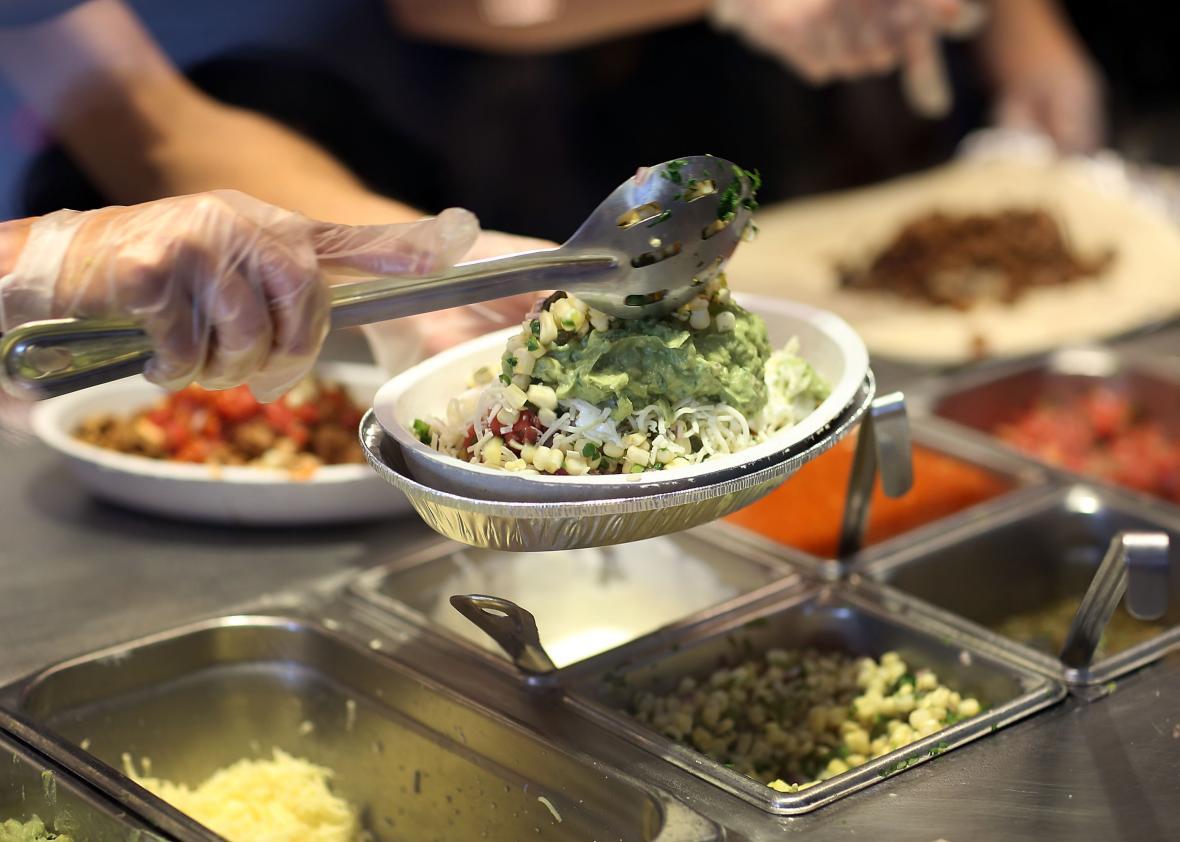Chipotle has voluntarily shuttered 43 restaurants in Washington state and Oregon after six of its restaurants there were linked to E. coli–related illnesses. Health authorities are investigating 19 cases in Washington and three in Oregon. Eight people have been admitted to the hospital, but no deaths have been reported.
In a statement posted online Saturday, the Oregon Health Authority advised people who ate at a Chipotle location between Oct. 14 and Oct. 23 to see a doctor if they became ill with vomiting and bloody diarrhea. Illnesses from E. coli generally develop within three to four days of consuming the tainted food and resolve within a week. Occasionally, the illness can cause kidney failure, something more common in the elderly and children younger than 5.
Chris Arnold, Chipotle’s director of communications, said in a statement that the chain had shuttered restaurants around Seattle and Portland “out of an abundance of caution.” The company’s stock was down about 2.5 percent or almost $16 a share in afternoon trading on Monday.
As USA Today notes, the E. coli outbreak is the third major food safety problem Chipotle has run into this year:
In August, a Chipotle restaurant in Simi Valley, Calif. was temporarily closed after 80 customers and 18 employees reported systems of Norovirus. The restaurant was reopened after restaurant operators did a deep cleaning of the store.
Also in August, Minnesota health and agriculture officials reported an outbreak of salmonella among customers of 17 different Chipotle restaurants located primarily in the Twin Cities metro area. Minnesota Department of Health officials cited tomatoes as the cause of outbreak, which affected 64 customers. Nine of those sickened customers were hospitalized.
That doesn’t bode well for the “food with integrity” campaign Chipotle has spent much of this year pushing. The chain has tried to appeal to fast-casual diners by eliminating GMOs and additives from its menu. (This Halloween’s annual “boorito” promotion asked people to show up in costumes with “something unnecessary,” Chipotle’s nod to what it deemed the “spooky (and unnecessary) additives in typical fast food.”) Whether these initiatives are based in legitimate health concerns or shameless and unscientific pandering to skittish consumers is a separate issue. But even setting that aside: Chipotle will be a bit hard-pressed to explain how, while it was getting rid of additives and GMOs, it let E. coli, Norovirus, and salmonella slip by.
